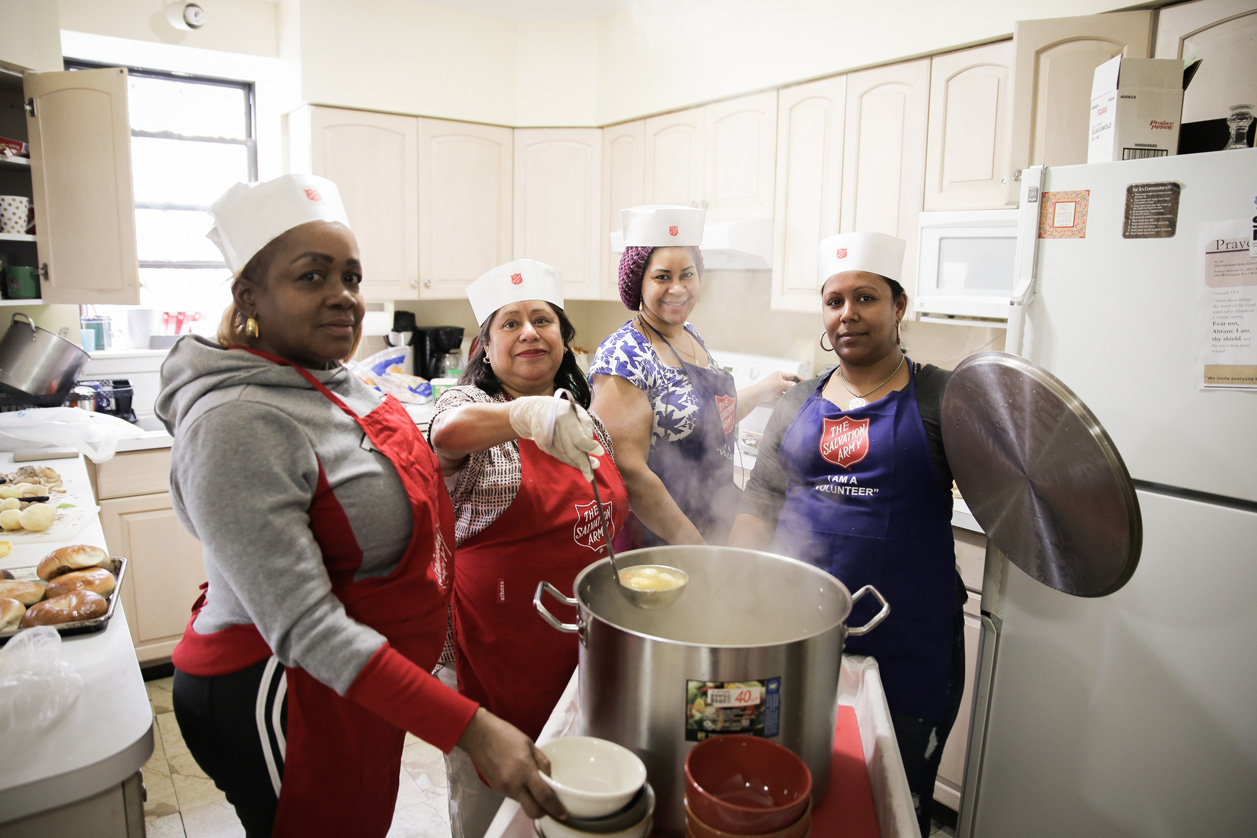Serving from the heart
by Guest

by Katie Perrett
A willingness to make time, a spirit of generosity, and a servant’s heart are all characteristics that embody volunteers. They may not describe themselves that way, but this honest assessment comes from the receiving end of their actions and contributions. This perspective also comes from the organizations they serve as colleagues see firsthand how they support the cause and choose the roles to play in those efforts.
For volunteers, the desire to serve, help, and reach others in need comes from an internal focus on their everyday mission rather than from a mandate. Such service aligns with their core values and belief systems. Acts of kindness generate a sense of community as well as personal satisfaction. These feelings drive volunteers to continue their selfless work and find other areas to make an impact.
Connecting service and faith
The Salvation Army benefits greatly from volunteers, as do many nonprofit organizations that rely heavily on volunteerism to support their programs and services. The Salvation Army, a Christian organization, offers a unique opportunity for volunteers to connect with people who share the same faith. Additionally, the Army provides another avenue for them to actively share their faith with the community. As a volunteer coordinator, I can personally attest to the faithfulness of the volunteers who serve the states of Connecticut and Rhode Island. Their devotion is truly inspiring. From my small corner of the country, I know that such character is magnified nationally throughout The Salvation Army. It is incredibly heart warming and inspires me to also volunteer.
Jesus Christ calls believers to be involved, to be active, and to be present in communities. Volunteers are given platforms that provide openings to speak into the lives of people who might need to hear a simple, “God bless you,” or for the first time be asked, “How are you?” These offerings can make a vast difference in someone’s life and open the door for more interactions.
In addition to having a conversation, the chance to take a more tangible approach may also arise. For example, the Apostle John described how Christians can serve and love others: “This is how we know what love is: Jesus Christ laid down his life for us. And we ought to lay down our lives for our brothers and sisters. If anyone has material possessions and sees a brother or sister in need but has no pity on them, how can the love of God be in that person? Dear children, let us not love with words or speech but with actions and in truth” (1 John 3:16–18). While this Scripture emphasizes a person’s actions, words, and conversation, prayer is still an immensely important factor in being present for others.
Feeding body and spirit
Volunteerism offers special opportunities to feed the bellies of others while also filling their souls with joy. These impactful moments are seen year–round. There is also a consistent boost of volunteer activity during the holiday season, which evokes the spirit of giving. It is a season when volunteers have the most influence.
The Salvation Army welcomes these volunteers, as regular services and programs on top of additional holiday efforts can be overwhelming for pastors and staff. So having the support of volunteers is crucial to the success of the holiday program.
Volunteers often participate in bell ringing for the annual Red Kettle Campaign, which raises money to support year–round programs and services. They also get excited about participating in other holiday activities such as sorting, packing, distributing toys, delivering holiday meals, and fundraising efforts.
The opportunity to make a profound impact is rewarding in more ways than one. God’s Word says, “Whoever is generous to the poor lends to the LORD, and he will repay him for his deed” (Proverbs 19:17, ESV).
While this Scripture lends itself primarily to believers, there is a general moral value for all volunteers who have that inner desire to give generously and to give back to their community. People’s gifts and skill sets are often underutilized. So for volunteers to contribute in a way that will benefit those in need the most is seen as the backbone of our success.
Katie Perrett is The Salvation Army divisional volunteer and emergency disaster services coordinator in Southern New England.
Read more from this issue.

